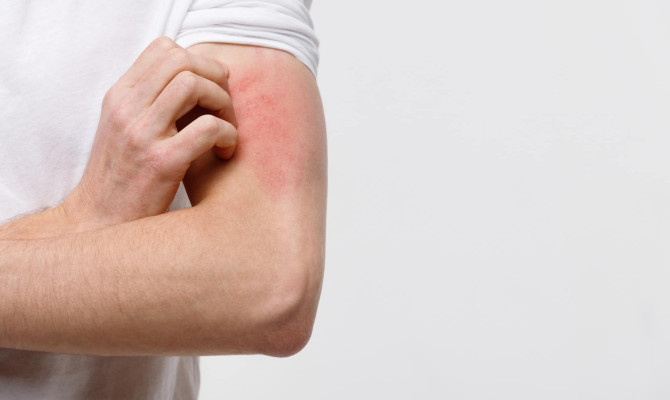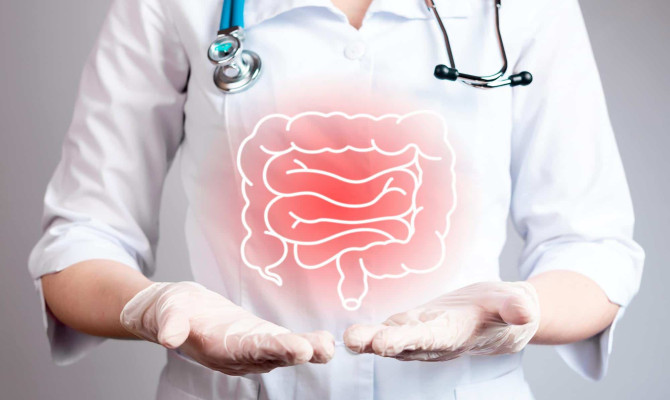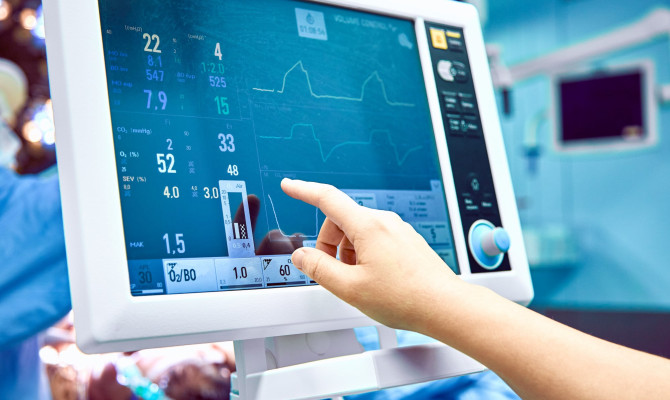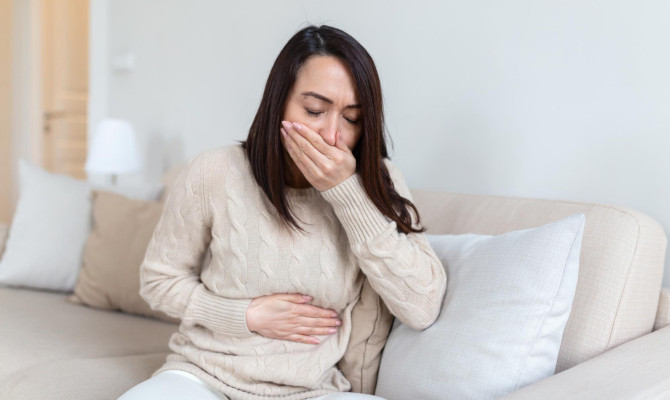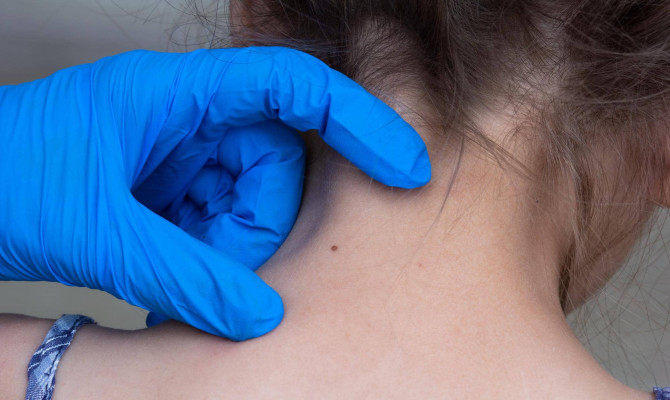Understanding digestive problems and their treatment

- Digestive Problems
- 16 Aug 2023
Overview
About digestive system
The digestive system of the body is an intricate and extensive system. From the mouth, it extends to the rectum. Your body utilizes the digestive system to absorb nutrients from food and eliminate waste.2Overview| Researched based study from hopkinsmedicine.org
Complications with digestion are disorders of the gastrointestinal tract and other related organs. The esophagus, stomach, intestines, and gallbladder are some examples of these organs. Several symptoms that interfere with daily activities can result from digestive problems. Constipation, bloating, vomiting, and nausea are a few of the typical symptoms.1Overview| Researched based study from Niddk.nih.gov
Many factors, including autoimmune diseases, mental health issues, genetics, and family history, can contribute to digestive problems.

Types
Digestive problem types
Gastro-esophageal reflux disease (GERD):
Backward or intermittent reflux of stomach contents into the esophagus is a symptom of gastro-esophageal reflux disorder (GERD). The tube that joins the throat and the stomach is known as the esophagus.
Reflux is a common occurrence that can occur even in those who don’t have any bothersome acid reflux symptoms. In contrast, GERD is identified in patients who experience acid reflux episodes that result in bothersome symptoms. Acid can irritate and harm the esophagus or the back of the throat, which can produce symptoms in people with GERD.3Types| Researched based study from Clevelandclinic.org
GERD symptoms
- Heartburn
- Chest pain
- Nausea or vomiting
- Hoarseness of voice and sore throat
- Regurgitation
- Difficulty or pain when swallowing
Gastritis
An inflammation of the stomach lining is called gastritis. Even though there are numerous potential causes, alcohol, aspirin, and other non-steroidal anti-inflammatory drugs (NSAIDs), especially Helicobacter pylori (H. pylori), are the most common ones.3Types| Researched based study from Clevelandclinic.org
Gastritis symptoms
- Appetite loss
- Burping and eructation
- Abdominal pain (transient or continuous burning, or gripping or gnawing pain)
- Nausea and vomiting
- Bloating
Peptic ulcers
Peptic ulcers and gastroenteritis frequently coexist. The lining of the lower oesophagus, small intestine, or stomach can develop lesions called peptic ulcers. They typically develop as a result of the inflammation brought on by NSAIDs, aspirin, and H. pylori.3Types| Researched based study from Clevelandclinic.org
Peptic ulcer symptoms
- Upper abdominal discomfort
- Loss of weight
- Appetite loss
- Nausea and vomiting
- Bloody or black stools (melena)
Irritable bowel syndrome
Functional bowel illnesses are a group of gastrointestinal disorders that include irritable bowel syndrome (IBS).
IBS patients frequently experience abdominal pain or discomfort that is eased by bowel movements and is linked to either diarrhoea or constipation. In IBS, diarrhoea typically happens during the day and right after meals. The gut experiences typical quantities of gas and movement as bloating and pain due to the highly sensitive nerves.
Irritable bowel syndrome symptoms
- Stool appearance changes
- Constant bloating
- Fatigue and trouble falling asleep
- Abdominal discomfort, cramps, or bloating during bowel movements
Constipation
Constipation may be present if your frequency of bowel movements has dropped to less than three times per week, you experience hard or small pellet-like stools, or you feel the need to strain when you defecate.
Causes of constipation
- Insufficient fluid intake
- Consuming insufficient amounts of fiber from fruits, vegetables, and grains
- Being inactive and reduced physical activity
- Due to medications
- Frequently resisting the urge to defecate
- Depression, stress, or anxiety
Food intolerance
Consuming foods that your body can’t break down effectively is the source of these digestive issues. Fast food, high-sugar foods, and other processed foods can be included. For instance, some lactose intolerant individuals may experience stomach issues if they consume dairy products. Similar to this, individuals with celiac disease or a gluten allergy may experience stomach problems if they consume gluten-free foods.3Types| Researched based study from Clevelandclinic.org
Food intolerance symptoms
- Diarrhea
- Constipation
- Excess gas
- Stomach pain
- Bloating
Diagnosis
Diagnostic test for digestive problems
Your healthcare professional will inquire about your medical history and your symptoms in order to make a diagnosis of a digestive condition. Also, physical examination will be performed by your healthcare professional.
Certain individuals need a more in-depth diagnostic evaluation. This could involve endoscopic procedures, imaging tests, or lab tests. These tests could consist of one or more of the following:4Diagnosis| Researched based study from urmc.rochester.edu
Lab tests
Fecal occult blood
- A test for fecal (occult) blood looks for undetectable blood in the stool. It entails putting a tiny bit of stool on a unique card. The stool is then either sent to a lab for analysis or examined in the doctor’s office.
Stool culture
- This examination looks for unusual bacteria in the gastrointestinal tract that could be the source of diarrhea and other issues. A little sample of feces is taken and sent to a lab for analysis. In two or three days, the test will show whether abnormal organisms are present.
Other stool tests
- The function of the pancreas, inflammation, and nonbacterial illnesses including viruses and parasites can all be examined in the stool.
Imaging tests
Ultrasound
- This imaging test uses a computer and sound waves with a high frequency to produce images of the blood vessels, organs and tissues.
- Internal organs are viewed with ultrasounds as they work. It can evaluate how well blood flows through different vessels.
- On the body part being examined, such as the abdomen, gel is applied. After that, the skin is probed with a transducer wand. The ultrasound equipment receives sound waves from the transducer that are sent into the body and returned by organs, creating an image on the monitor. For subsequent assessment, the test is also recorded on camera or on video.4Diagnosis| Researched based study from urmc.rochester.edu
CT scan
- This imaging technique creates precise images of the body using X-rays and a computer.
- The bones, muscles, fat, and organs may all be seen clearly on a CT scan.
- Compared to normal X-rays, CT scans are more thorough.
Colorectal transit study
- It demonstrates how efficiently food passes through the colon.
- You ingest capsules carrying minute markers that show up on X-rays. Following that, you consume a high-fiber diet while taking the test. With the help of abdominal X-rays, the markers’ passage through the colon is tracked. Between three and seven days after swallowing the capsule, you should take them numerous times.4Diagnosis| Researched based study from urmc.rochester.edu
- A wireless motility capsule, also known as a capsule endoscopy, is a more recent method of doing this.
MRI scan
- Using a mix of large magnets, radiofrequency technology, and a computer, this test generates exact images of the body’s organs and structure.4Diagnosis| Researched based study from urmc.rochester.edu
- The tool captures multiple images of the body’s inside using radio waves and a magnetic field. The images are improved by the computer.
- The examination is painless. Additionally, radiation is not a factor.
Magnetic resonance cholangiopancreatography (MRCP)
- MRI is used in this test to visualise the bile ducts. The device scans interior organs and tissues using magnets and radio waves.
Upper gastrointestinal series (also known as barium swallow)
- During this test, the organs of the upper digestive system are examined. These are the duodenum (the first section of the small intestine), the oesophagus, and the stomach. After swallowing barium, X-rays are obtained to examine the digestive system.
Lower GI (gastrointestinal) series
- Barium enema is another name for this test. It monitors at the rectum, the large intestine, and the bottom part of the small intestine.
- A barium enema is administered into the rectum. An abdominal X-ray reveals obstructions (blockages), strictures (narrowed regions), and other issues.
Defecography
- In this procedure, X-rays of the anal and rectal regions are taken. It assesses the efficiency with which the rectal muscles work and the manner in which faeces leave the body. Additionally, it can detect anomalies in the rectum or anus.4Diagnosis| Researched based study from urmc.rochester.edu
- During the test, a soft substance with a consistency similar to stool fills your rectum. Following that you take a seat inside an X-ray machine on a toilet.
- You squeeze and relax the anus in order to release the substance. The radiologist reviews the X-rays to see if there are any problems.
Radioisotope gastric-emptying scan
- You consume radioisotope food during this test. This material, which is a little radioactive, will appear on a scan. However, while you’re lying under a machine, the radiologist can see the food in your stomach and how quickly it’s leaving.4Diagnosis| Researched based study from urmc.rochester.edu
- The wireless motility capsule and breath testing are two more, more recent procedures to identify issues with food exiting the stomach (gastroparesis).
Oropharyngeal motility (swallowing) study
- Also, known as barium swallow. You will be given small amounts of a barium-containing beverage to sip out of a bottle, spoon, or cup throughout this test. To see what transpires while you ingest the liquid, a series of X-rays are taken.4Diagnosis| Researched based study from urmc.rochester.edu
Treatment
Treatment of digestive problems
Irritable bowel syndrome (IBS)
- Decreasing the intake of caffeine
- Reducing stress or finding alternative coping mechanisms
- Increasing more fiber to your diet
- Tracking the foods that cause IBS symptoms
- Avoid getting dehydrated and consuming enough fluids throughout the day
- Have good-quality of rest or sleep
- Following medication regimen as recommended by your doctor
Constipation
- Increasing your intake of fiber and water will benefit you
- When you feel the urge, move your bowels (because resisting it might lead to constipation)
- Regular exercise and stepping up your workout intensity as tolerated
If none of these treatment methods work, laxatives can be added. Always consider the recommendations of your healthcare practitioner and the directions on the label of your laxative medication.
Gastritis
Depending on the etiology, there are various therapy options for gastritis. Some medications cure dyspepsia symptoms, while others kill bacteria. Your healthcare provider may suggest:
- Antibiotics-To treat the bacterial infection, an antibiotic will be administered. For a few weeks, you might need to take a variety of antibiotics to eradicate the infection.
- Antacids-Calcium carbonate-containing medications reduce exposure to stomach acid. They might help to lessen inflammation.
- Histamine (H2) blockers-Medication like cimetidine, ranitidine, and others that act similarly reduce stomach acid production.
- Proton pump inhibitors-The amount of stomach acid produced is reduced by certain medications, such as omeprazole and esomeprazole.
For peptic ulcer
Your doctor may inject medication into your ulcer during an endoscopic procedure if it is bleeding. Your doctor may also apply a clamp or cauterize—burning tissue—to shut it off and stop the bleeding.
- Proton pump inhibitors-These medications lessen acid, allowing the ulcer to heal. Omeprazole, rabeprazole and esomeprazole are examples of PPIs.
- Histamine (H2) blockers-Famotidine, cimetidine, ranitidine are among the medications that lower acid production.
- Antibiotics-These medicines eradicate microorganisms. To treat H. pylori, doctors utilise them.
- Protective medications-These medications protect the ulcer from further damage from digestive acids and enzymes by acting as a liquid bandage.
GERD (gastroesophageal reflux disease or chronic acid reflux)
Many over-the-counter (OTC) and prescription medications are available to treat GERD. The majority of OTC drugs can also be obtained with a prescription. Your doctor will provide you a prescription medicine if the OTC formulas are not alleviating your symptoms.
- Baclofen-A prescription medication called baclofen is used to lessen the relaxation of the lower esophageal sphincter, which enables acid backwash.
- Proton pump inhibitors-Stronger acid blockers like omeprazole, rabeprazole, and esomeprazole promote repair of damaged esophageal tissue.
- Histamine (H2) blockers-Famotidine, cimetidine, ranitidine are examples of medications (which reduce acid production).
- Antacids-provides immediate comfort by reducing stomach acids, includes aluminium hydroxide, magnesium hydroxide and calcium carbonate 3Treatment| Researched based study from Clevelandclinic.org
Prevention
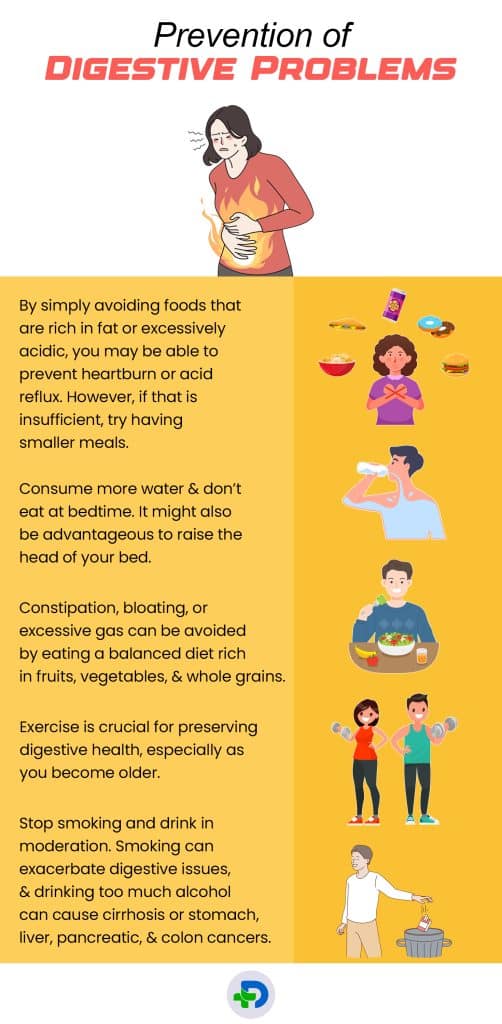
Prevention of Digestive Problems
- By simply avoiding foods that are rich in fat or excessively acidic, you may be able to prevent heartburn or acid reflux. However, if that is insufficient, try having smaller meals.
- Consume more water and don’t eat at bedtime. It might also be advantageous to raise the head of your bed.
- Constipation, bloating, or excessive gas can be avoided by eating a balanced diet rich in fruits, vegetables, and whole grains. Although certain high-fiber foods, such as beans, may at first produce flatulence, your body will adjust as it becomes accustomed to the changes. Your digestion may be regulated with soluble fiber supplements
- Exercise is crucial for preserving digestive health, especially as you become older. Mix cardiovascular exercise with muscle-building activities for at least two and a half hours per week
- Use food safety precautions when preparing meals at home to prevent microorganisms that could worsen diarrhea.
- Stop smoking and drink in moderation. Smoking can exacerbate digestive issues, and drinking too much alcohol can cause cirrhosis or stomach, liver, pancreatic, and colon cancers.5Prevention| Researched based study from ukhealthcare.uky.edu
Takeaway
Takeaway tips
To improve your digestion and keep your digestive system healthy, follow the below measures:
- Management of stress
- Regular daily exercise
- Consume probiotics and prebiotics as part of a healthy diet
- Eat fewer foods heavy in fat and take lean meats
- Drink plenty of water and follow your routine diet schedule
- Consume high fiber diet (includes soluble and insoluble fiber)
- Avoid smoking, excessive alcohol intake and alcohol
Any feedback on this article?
 This Articles content was accurate
This Articles content was accurate Very Informative Article
Very Informative Article I have a question or a comment
I have a question or a comment
 This article contains inaccurate content
This article contains inaccurate content This article was not helpful
This article was not helpful I have a question or a comment
I have a question or a comment
We appreciate your helpful feedback!
Checkout our social pages
References
-
National Institute of Diabetes and Digestive and Kidney Diseases.
Digestive Diseases | Overview
-
Johns Hopkins Medicine
How Digestion Works | Overview
-
Cleveland Clinic
Gastrointestinal Diseases | Types | Treatment
-
University of Rochester Medical Center Rochester
Digestive Diagnostic Procedures | Diagnosis
-
University of Kentucky
Preventing Digestive Problems | Prevention















